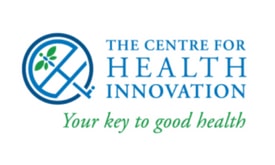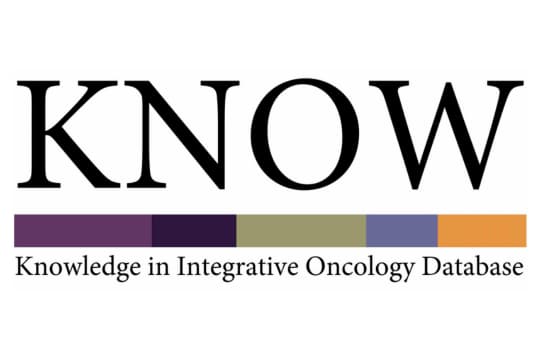Extracts of turkey tail mushroom and its constituent PSK are used with conventional cancer treatment to improve survival and reduce risk of recurrence. The constituent PSP shows some benefit for pain, appetite, and percentage of body fat.
Are you a health professional?
This section does not replicate the other information on this topic but provides additional details or context most relevant to professionals.
More on safety
“Due to the stimulatory effects of Coriolus on immunocompetent cells, there is the potential for counteraction when administered with immunosuppressants. Therefore, caution should be exercised when administering Coriolus alongside immunosuppressants, or this combination should be avoided altogether.”1Professional Resource: Coriolus Versicolor. Centre for Health Innovation. Viewed October 25, 2021.
Some preclinical studies on breast cancer, hepatocellular carcinoma, and leukemia produced mixed results regarding benefit and risk. A hot water extract of Coriolus enhanced development of large intestinal tumors in mice.2Toth B, Coles M, Lynch J. Effects of VPS extract of Coriolus versicolor on cancer of the large intestine using a serial sacrifice technique. In Vivo. 2006 May-Jun;20(3):341-6.
Turkey tail constituents
The known active constituents of turkey tail mushrooms associated with its medicinal properties:3Stamets P. MycoMedicinals: An Informational Treatise on Mushrooms, 3rd Edition. China: MycoMedia Productions. 2002. p. 42.
- β-glucans
- PSK (protein bound polysaccharide, β (1-4)D-glucan protein): Krestin (Japanese formulation)
- PSP (polysaccharopeptide)
- Ergosterol (provitamin D2 derivatives)
Turkey tail is prepared from three forms:
- Fruiting bodies (the part that grows above ground or outside the host tree)
- Mycelium (the thread-like, root-like branching hyphae) grown on grain
- Mycelium in fermentation
PSK (a glycoprotein-bound mixture) is the best-known component of turkey tail. While its mechanism of action is not yet clearly defined, studies of PSK suggest anticancer mechanisms, as described below and on How can turkey tail mushroom help you? What the research says ›
Mode of action: gene expression
Turkey tail mushroom has multiple activities in cancer which scientists propose is due to modulating gene expression, thereby decreasing a gene master switch that turns on genes that drive cancer transformation, development, and progression. Preclinical evidence supports this.4Wu JM, Doonan BB et al. Recent advances and challenges in studies of control of cancer stem cells and the gut microbiome by the Trametes-derived polysaccharopeptide PSP (review). International Journal of Medicinal Mushrooms. 2016;18(8):651-660.
Preclinical evidence
Notable preclinical evidence is listed here; clinical evidence is in How can turkey tail mushroom help you? What the research says ›
Improving treatment outcomes
Cancer as a whole
- Less vascular density and less expression of vascular endothelial growth factor (VEGF) among mice implanted with murine sarcoma s180 cells and treated with PSP compared to control mice given only water. Greater arrest in tumor growth was also observed in the group of mice treated with PSP compared to control mice.5Ho JC, Konerding MA, Gaumann A, Groth M, Liu WK. Fungal polysaccharopeptide inhibits tumor angiogenesis and tumor growth in mice. Life Sciences. 2004 Jul 30;75(11):1343-56.
- Lower levels of TNFα and lower spread of malignant cells in glioblastoma, lung adenocarcinoma, and breast adenocarcinoma cells treated with small molecules from turkey tail6Yang CL, Chik SC et al. Coriolus versicolor and its bioactive molecule are potential immunomodulators against cancer cell metastasis via inactivation of MAPK pathway. Journal of Ethnopharmacology. 2023 Jan 30;301:115790.
Breast cancer
- Greater arrest of tumor growth among neu-T mice bearing HER2/neu+ breast cancer tumors treated with trastuzumab plus PSK compared to those treated with trastuzumab or PSK alone. Greater arrest in tumor growth was also observed in mice treated with PSK alone compared to controls but not compared to those treated with trastuzumab alone.7Lu H, Yang Y, Gad E, Inatsuka C, Wenner CA, Disis ML, Standish LJ. TLR2 agonist PSK activates human NK cells and enhances the antitumor effect of HER2-targeted monoclonal antibody therapy. Clinical Cancer Research. 2011 Nov 1;17(21):6742-53.
Colorectal cancer
- Significant growth inhibition on multiple human colorectal cancer cell lines using musarin, a 12-kDa protein derived from turkey tail mushroom8He YY, Liu S et al. Musarin, a novel protein with tyrosine kinase inhibitory activity derived from trametes versicolor inhibits colorectal cancer stem cell growth. Biomedicine and Pharmacotherapy. 2023 May; 161:114424.
- Inhibited cell proliferation, induced cytotoxicity, inhibited oncogenic potential, and invasion in human colon cancer cells treated with fungal extracts of turkey tail mushroom9Roca-Lema D, Martinex-iglesias O. In vitro anti-proliferative and anti-invasive effect of polysaccharide-rich extracts from trametes versicolor and Grifola Frondosa in colon cancer cells. International Journal of Medical Science. 2019 Jan;16(2):231–240.
Leukemia
- An ethanol extract of Coriolus versicolor demonstrated in vitro anti-proliferation effects on a B-Cell lymphoma (Raji) and 2 promyelocytic leukemia (HL-60 and NB-4) cells lines in a dose dependent manner. No significant cytotoxic effect was observed in normal liver cells.10Lau CB, Ho CY et al. Cytotoxic activities of Coriolus versicolor (Yunzhi) extract on human leukemia and lymphoma cells by induction of apoptosis. Life Sciences. 2004 Jul 2;75(7):797-808.
- Greater cell lysis of K562 leukemia cells correlating with greater interferon gamma (IFN-𝛾) detected from natural killer (NK) cells stimulated with PSK compared to controls in vitro11Lu H, Yang Y, Gad E, Inatsuka C, Wenner CA, Disis ML, Standish LJ. TLR2 agonist PSK activates human NK cells and enhances the antitumor effect of HER2-targeted monoclonal antibody therapy. Clinical Cancer Research. 2011 Nov 1;17(21):6742-53.
Melanoma
- Inhibited tumor growth, cell proliferation and viability of melanoma cancer cells in vitro and in mice treated with a C. versicolor methanol extract. In addition, macrophages harvested from treated mice exhibited stronger ex-vivo tumorostatic effects compared to macrophages harvested from control mice12Harhaji L, Mijatović S et al. Anti-tumor effect of Coriolus versicolor methanol extract against mouse B16 melanoma cells: in vitro and in vivo study. Food Chemistry and Toxicology. 2008 May;46(5):1825-33.
Osteosarcoma
- Direct anticancer effects resulting in reduced tumor growth and metastasis including induced cell death (apoptosis) in human osteosarcoma cells grafted into mice13Zhao X, Ma S, Liu N, Liu J, Wang W. A polysaccharide from Trametes robiniophila inhibits human osteosarcoma xenograft tumor growth in vivo. Carbohydrate Polymers. 2015 Jun 25;124:157-63.
Prostate cancer
- Greater tumor suppression (greater apoptosis and less proliferation) among transgenic adenocarcinoma of the mouse prostate (TRAMP)-C2 bearing mice when treated with a combination of PSK and docetaxel compared to those treated with either PSK or docetaxel alone.14Wenner CA, Martzen MR, Lu H, Verneris MR, Wang H, Slaton JW. Polysaccharide-K augments docetaxel-induced tumor suppression and antitumor immune response in an immunocompetent murine model of human prostate cancer. International Journal of Oncology. 2012 Apr;40(4):905-13.
- Chemopreventive effects from PSP through elimination of prostate cancer stem cells15Luk SU, Lee TK et al. Chemopreventive effect of PSP through targeting of prostate cancer stem cell-like population. PLoS One. 2011;6:e19804; Wu JM, Doonan BB et al. Recent advances and challenges in studies of control of cancer stem cells and the gut microbiome by the Trametes-derived polysaccharopeptide PSP (review). International Journal of Medicinal Mushrooms. 2016;18(8):651-660.
- Sensitized cancer cells to the toxicity of a vitamin E isomer (γ-T3), with significantly reduced prostate tumor growth in animals treated with a combination of PSP and γ-T316Liu J, Lau EY et al. Polysaccharopeptide enhanced the anti-cancer effect of gamma-tocotrienol through activation of AMPK. BMC Complementary and Alternative Medicine. 2014 Aug 16;14:303.
Optimizing body terrain
Blood sugar and insulin resistance
- Improved blood glucose levels, glucose tolerance, insulin resistance, serum fructosamine and triglycerides in rats with induced type 2 diabetes given turkey tail supplementation compared to controls17Lo HC, Hsu TH, Lee CH. Extracellular polysaccharopeptides from fermented turkey tail medicinal mushroom, Trametes versicolor (agaricomycetes), mitigate oxidative stress, hyperglycemia, and hyperlipidemia in rats with type 2 diabetes mellitus. International Journal of Medicinal Mushrooms. 2020;22(5):417-429.
Immune function
- Significant immune activity18Standish LJ, Wenner CA et al. Trametes versicolor mushroom immune therapy in breast cancer. Journal of the Society for Integrative Oncology. 2008 Summer;6(3):122-8.
- Modulates immune response by activating cancer cell-killing macrophages, helper T cells and natural killer cells19Wu JM, Doonan BB et al. Recent advances and challenges in studies of control of cancer stem cells and the gut microbiome by the Trametes-derived polysaccharopeptide PSP (review). International Journal of Medicinal Mushrooms. 2016;18(8):651-660.
Inflammation
- Modulates gene expression, decreasing COX-2 expression, which is associated with chronic inflammation, a contributor to cancer development20Wu JM, Doonan BB et al. Recent advances and challenges in studies of control of cancer stem cells and the gut microbiome by the Trametes-derived polysaccharopeptide PSP (review). International Journal of Medicinal Mushrooms. 2016;18(8):651-660.
Microbiome
- Increased Bifidobacterium spp. and Lactobacillus spp. and decreased Clostridium, staphylococcus, and enterococcus spp. In a fecal culture within a medium including PSP compared to a medium including cellulose21Yu ZT, Liu B, Mukherjee P, Newburg DS. Trametes versicolor extract modifies human fecal microbiota composition in vitro. Plant Foods for Human Nutrition. 2013;68:107–12.
Helpful links for professionals
Health professional comment
We invite health professionals to contribute expertise or send us questions.
"*" indicates required fields
References




